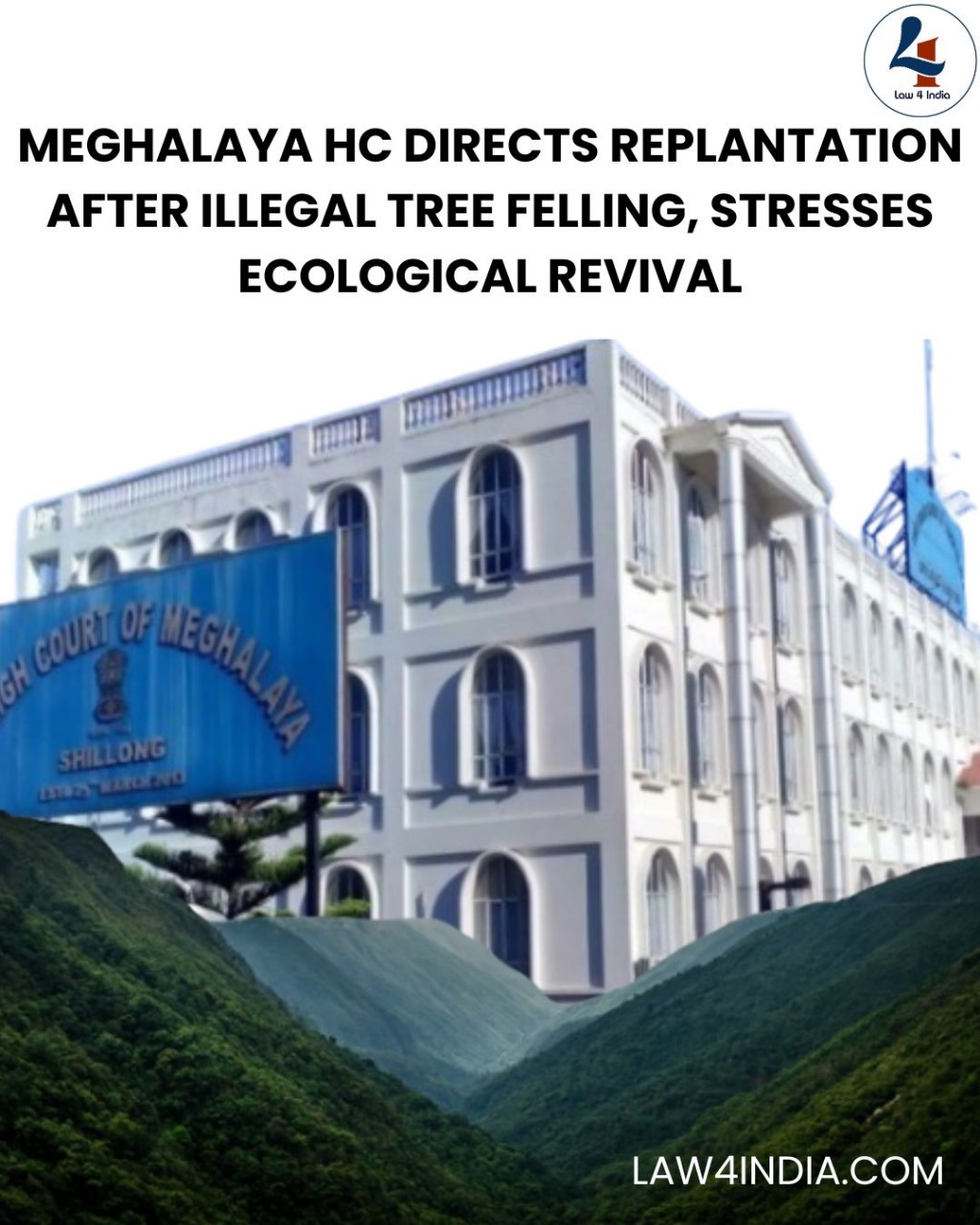- Ayush Saroj
The Illegal tree-cutting in the East Khasi Hills District was contested by the Meghalaya High Court, which found that the State had not produced any evidence that the trees had been taken down by due process of law
To strengthen environmental accountability and the importance of preserving the State’s green cover, the court mandated that the State administration take steps to replant trees of a comparable type that had been unlawfully destroyed.
Court cited that if any felling of trees has already been done irregularly or illegally it is irreversible. Furthermore, the court directed the respondents to plant trees more or less of the same type or description wherever tress were cut down without due process of law.
The Court expanded the petition’s scope to include the entire East Khasi Hills District while a division bench consisting of Chief Justice IP Mukerji and Justice W Diengdoh was deliberating a PIL filed by Geraldine G. Shabong, who expressed concerns regarding the unlawful and irregular felling of trees in Lower New Colony, Laitumkhrah.
Court Observed some of the fallen trees were almost a century old, and the petitioner stressed their ecological and historical significance. The petitioner argues that the trees were cut down without reason, in violation of the Meghalaya Tree (Preservation) Act, 1976, and the Meghalaya Tree (Preservation) Rules, 1976. The law stipulates that a Divisional Forest Officer (DFO) must obtain an application in Form-I before permitting the felling of trees. The DFO must conduct an investigation prior to approving such an application.
The petitioner claims that when people reported that the trees in the aforementioned area were either dangerously standing or obstructing entrance or egress, the State unilaterally chopped them down without following the correct processes.
Although they did not confirm if the requisite process outlined in the Meghalaya Tree (Preservation) Act and Rules was followed prior to allowing tree cutting, AAG filed an affidavit-in-opposition on behalf of the State.
After hearing the parties, the Court rejected the State’s affidavit which claimed that the necessary process had been followed before the trees were cut.
Furthermore, the Court mandated that the State publish all pending tree-cutting petitions in the aforementioned area, ensuring that each is thoroughly resolved in compliance with the aforementioned Act and Rules and directing the State to provide the information in an affidavit by February 28, 2025.
Case Title: Geraldine G. Shabong Vs. State of Meghalaya & ors
Ayush Saroj is a 4th Year B.A. LL.B student at City Law College, University of Lucknow

